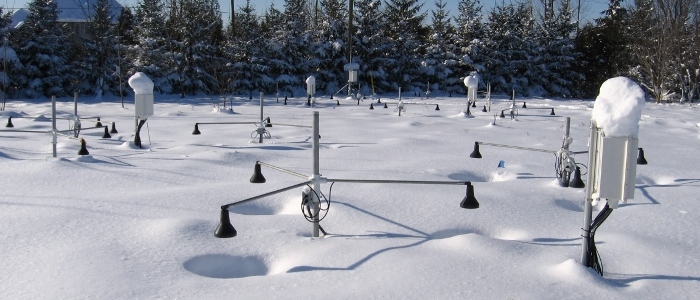
Professor
Department of Biology
Western University
1151 Richmond St. N
London, Ontario, Canada
N6A 5B7
Office: Biological & Geological Sciences 3021
Email: hhenry4@uwo.ca
Phone: 519 661-2111 x 81548
Fax: 519 661-3935

Photo: Hugh Henry
WINNTER (WINter warming and Nitrogen addition in Temperate Ecosystems Research)
Seasonal nitrogen dynamics of northern temperate ecosystems Nitrogen (N) is a key mineral nutrient for plant and animal growth, yet it is often in short supply. Knowledge of how N becomes available to organisms and is lost from ecosystems is essential for predicting the responses of ecosystems to disturbances or climate change. Although the interactions between plants and soil microorganisms that drive ecosystem N dynamics have been studied extensively, much of this work has been restricted to summer, when plants are actively growing. The winter had largely been regarded as a time of stasis with respect to plant growth and microbial activity. However, recent studies have revealed that substantial microbial activity can be present under the snow pack. Furthermore, the late fall and early spring, which are characterized by cycles of freezing and thawing and runoff from snowmelt, have been identified as extremely dynamic transition points in the N cycle. Despite the potential importance of these processes in driving ecosystem N transformations and losses, the coupling of winter and summer N dynamics is poorly understood, particularly for northern temperate systems. These systems should be of particular interest, given that they can also be subject to high levels of N pollution, whose effects on N dynamics may interact with those of climate change.
- WINNTER (WINter warming and Nitrogen addition in Temperate Ecosystems Research)
I have initiated a long-term large-scale field experiment (photo above) to explore how soil processes that take place over winter can alter the productivity of ecosystems in the summer as a result of their effects on N availability. I am experimentally manipulating changes in climate conditions from late fall through early spring and monitoring their effects on N dynamics and summer plant growth. I am also investigating differences in plant N uptake early in the season, changes in microbial communities and the fate of N added to the soil at different times of year. The results of these experiments will have important implications for the future responses of ecosystems to climate change and N pollution.
- Research projects in plant and soil ecology
My students and I are currently conducting a range of field and controlled environment experiments to explore tradeoffs in root architecture and root traits in the context of plant freezing, nitrogen acquisition and water acquisition. We are also examining the legacy effects of increased atmospheric carbon dioxide, nitrogen deposition, increased precipitation and climate warming on soil organic matter fractions in a Califonia grassland. Another suite of field experiments we are conducting is addressing how changes in plant litter thickness as a result of fire and nitrogen depostion alter plant and soil microbial responses to soil frost.